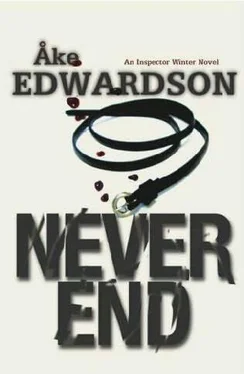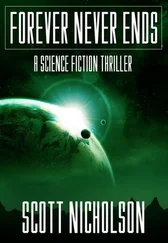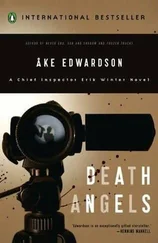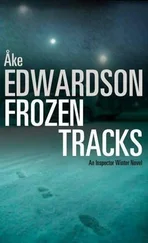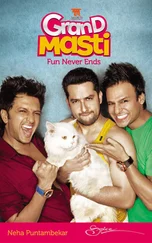Don't forget Jeanette Bielke either. Nor her father.
Nor her mother.
"What impression have you gotten of Jeanette's mother?" Winter asked. Halders coughed again.
"Not much," he said, after yet another coughing fit. "She's sort of a shadow." He cleared his throat, opened the window, and spat into the slipstream. "She's kept out of the way whenever I've been there."
They stopped at a red light outside the Opera House. Sails were slack on boats in the marina. Bronzed bodies in bathing suits sat in the sidewalk cafes. Everything was blue, white, yellow, brown, brick red.
"There's an awful lot of innuendo in this case," Winter said.
"You can say that again," said Halders.
"It's time we dug more deeply into that."
"Unless it's just sidetracks."
"Sidetracks are there to be followed until you come to the dead end."
Halders didn't respond. He was watching two families crossing the street in front of them. Two men about thirty, each pushing a baby carriage. "You can say that about most things in this life," he said, when they moved off again.
"What, exactly?"
"Well… most things are really sidetracks that are there for you to follow, and they nearly always lead to a dead end."
Winter didn't respond. The death of Margareta hadn't changed Halders's philosophy of life.
At the same time, it summed up their work. Sidetracks. Dead ends. Sidetracks. Dead ends. In the end there would be no more dead ends left, but if they worked hard and had a bit of luck, there would be one last track, and they'd follow it, and this one wouldn't lead to a dead end. That was where they were heading, all the time. That was their job. Follow tracks as far as hell, where they might find some answers. Not answers to everything. You never find that, he thought. Seldom explanations. There aren't too many explanations for people's secrets. Who has ever had life explained to them? There is no ultimate summary of life. Life simply comes to an end, just like that, much too early for some; it simply stopped, like a sun suddenly falling out of the heavens.
***
Yngvesson was working in his sound studio when Winter arrived. The studio was a little room inside another little room. There was a jagged line dancing on one of the computer screens, like a heartbeat.
"Not pleasant listening," said Yngvesson, turning to face Winter.
"What can you hear?"
"Well, the particular sound made by a noose being tightened around somebody's neck, for one thing."
"What did she say before that happened?"
Yngvesson swung around to face the control console, which, like the room itself, was surprisingly small.
"It's mainly a struggle. Moaning. No specific cries for help."
"A struggle? Is there any doubt in the attacker's mind about how it'll end, do you think?"
"What do you think yourself, from what you've heard so far?"
"No."
"No," repeated Yngvesson. "But in cases of rape there's often a moment when the victim sees an opportunity of escaping. Of breaking free. Lots of victims have talked about that, afterward. It's as if there's a sort of… gap in the struggle, or the assault, when the attacker hesitates, or seems to hesitate."
"Apologizes?"
"No. That comes later," said Yngvesson. "If at all."
"What do you hear in this case?"
"I don't hear any doubt," Yngvesson said. "No doubt at all."
It was silent in the studio. Winter could hear nothing from the world outside.
"I'm wondering if she knew him," Winter said.
"How do you mean?"
"If there's any way you can hear that she recognized him. Knew him."
"That I can't say," said Yngvesson. "Not yet at least." He looked at Winter again. "You'll have to rely on your detective work for that. And the clever way in which you phrase the questions you put to those who knew her."
"Yes, OK."
"What I can tell you, though, is that he says something to her," Yngvesson said.
"Can you figure out what he says?"
"If I can filter it out from the sound image when it's at its clearest."
"When's that?"
"When they're close to her bag. That's when the sound is best."
"So he definitely says something to her?"
"Or to himself. Do you want to hear?"
Winter nodded, and sat down on the chair next to the biggest computer.
The voice came over the loudspeaker. This isn't heavy metal, Winter thought. This is the real thing.
"NNAAAAIEIEIEYRRRRYY!"
"RREIEIYYYYH"
Winter looked at Yngvesson. His profile was sharp, calm, professional. God only knows what he was thinking.
"He might be saying her name," said Yngvesson, without turning his head. "She was named Anne. 'AAAIEIEIE' … that could be her name."
Winter listened.
"Can you make it any clearer?"
"I'm trying, I'm trying. Not yet. I need to do some more work on the high register, try to lower it. There's a lot of background stuff that needs washing out as well."
"Such as?"
"Various hums and buzzes. The wind, presumably. Traffic noise."
"Traffic noise?"
"Yes, traffic noise. A car goes by. About thirty meters away, maybe fifty."
"It's several hundred meters to the main road."
"Not on this tape. I think it's a car, and it's close by, as I said."
"It's possible to drive a car along the bike path there."
"There you are, then."
"So a car might have driven by while it was happening?"
"It seems so."
"They should've seen the bike lying on the ground," said Winter.
"People pay no attention to such things," said Yngvesson.
"Somebody in the car should've seen something of what was happening," Winter said.
"In that case you'd better start looking for another witness."
"Can you tell what make of car it is?"
"Of course," said Yngvesson dryly. "Hang on a minute and the computer will tell you its license plate number as well."
Yngvesson played the sequence one more time.
"There." He rewound, then played it again. "There. That's a sentence of some kind. Or a sequence of words, at least. Not just a mad burbling."
Winter could hear the burbling. It sounded worse every time he heard it. Like watching a snuff movie. People being killed for real. A snuff tape. A real murder.
"I'll crack this, by God, I will," said Yngvesson.
"Can you tell if he's young or old?" Winter asked.
"One thing at a time."
"But will it be possible?"
The technician shrugged, barely visibly, once again absorbed in his work.
***
Ringmar went to fetch some coffee. He muttered something as he headed for the half-open door.
"Come on, it's your turn," Winter shouted after him.
Ringmar came back, but had forgotten the milk. He had to go back again. Winter was at the window, smoking. Mercators weren't as good as Corps. You could import Corps yourself from Belgium. Maybe ask one of the thousands at EU headquarters who commute between Sweden and Brussels.
A canoe passed by on the river. Winter watched the ripples from the paddle-the only movement out there this afternoon. No cars, no streetcars, no airplanes, no pedestrians; no sound, no wind, no smell, nothing except the man paddling eastward with the sun like a spear in his back as rays found their way through the buildings at Drottningtorget.
"OK?" said Ringmar from behind him, putting the cup of coffee on Winter's desk.
"What do you say to putting a tail on Mr. Samic, the club and restaurant king?" asked Winter, without turning around. He took a last drag on his cigarillo before stubbing it in the ashtray on the window ledge.
"Why not?" said Ringmar. "If we're smart about it."
"I was thinking of Sara," Winter said.
Sara Helander. One of the new detectives, already an inspector and on her way to higher things. Relatively unknown about town. Good-looking, without being stunning. Nobody should look too stunning in this job, Winter thought. Except me. But that's in the past now.
Читать дальше
